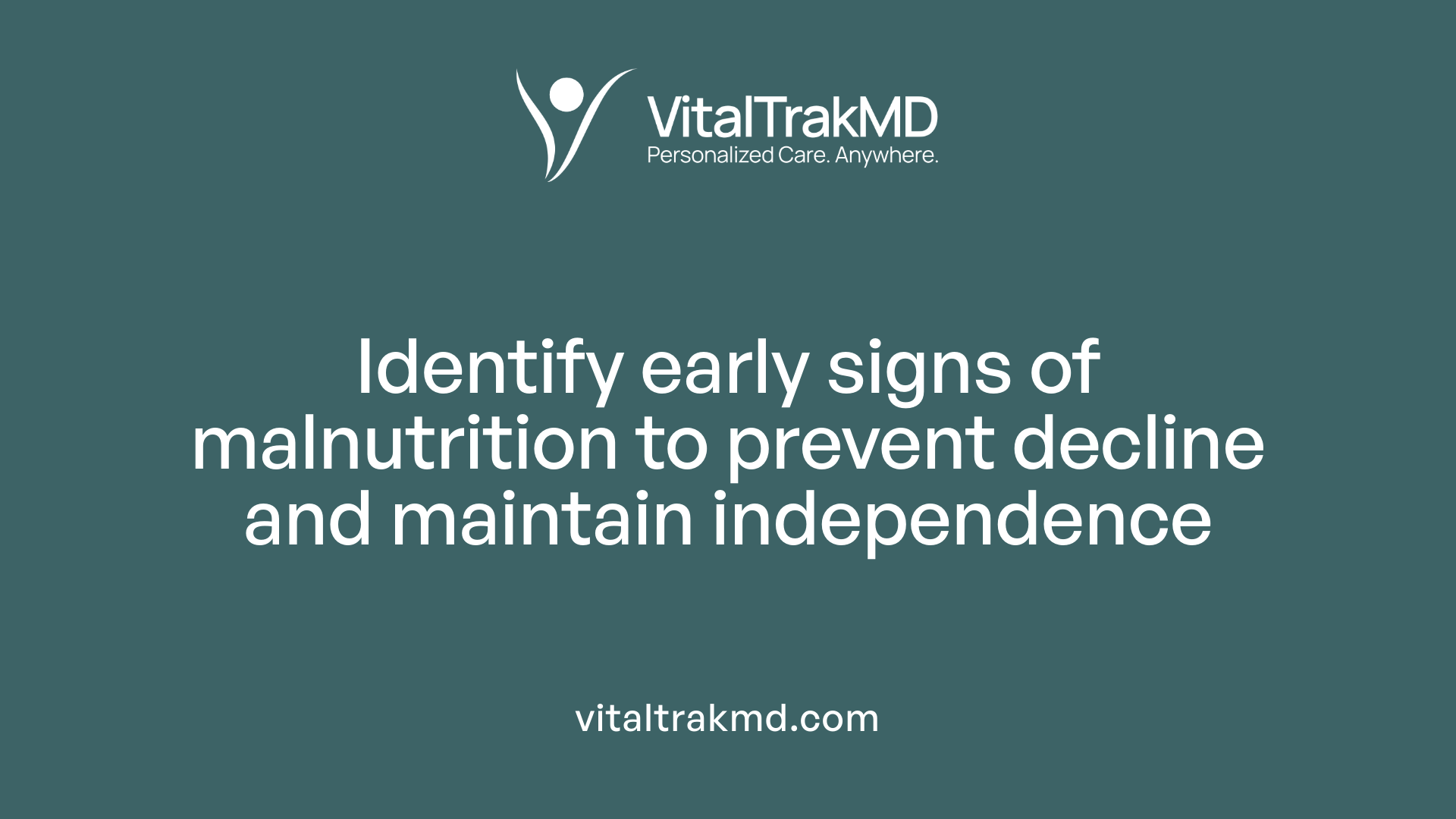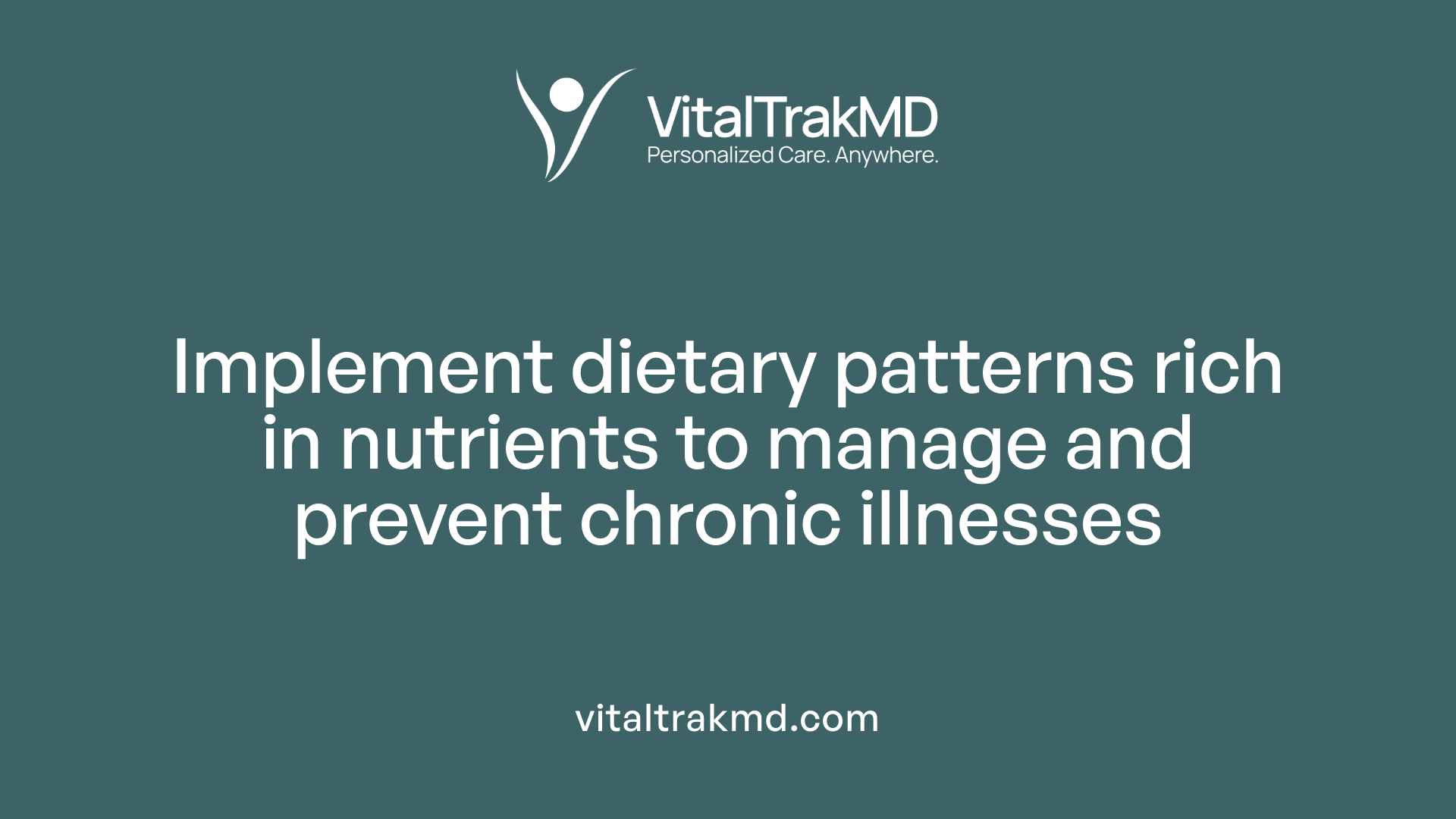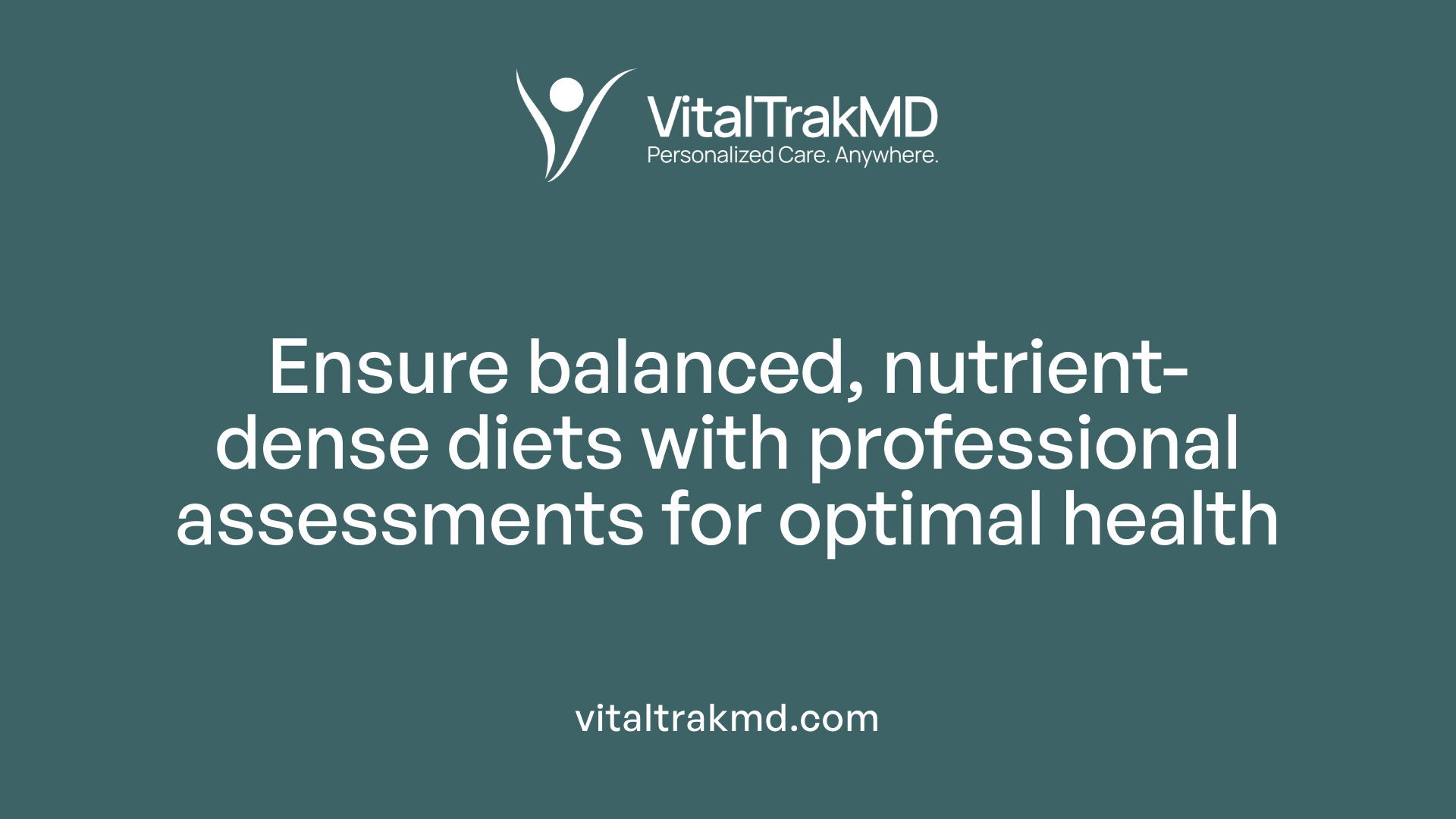How Nutrition Influences Recovery in Chronic Illness Among Seniors

Understanding the Impact of Nutrition on Aging and Chronic Disease Management
As the global population aged 60 and above approaches two billion by 2050, the importance of optimal nutrition in supporting health, recovery, and quality of life in seniors with chronic illnesses becomes ever more crucial. Malnutrition, nutritional frailty, and poor dietary patterns significantly influence disease progression, functional capacity, and recovery outcomes. This article explores how tailored nutritional interventions and comprehensive strategies can address age-related physiological changes, support immune and musculoskeletal health, and enhance recovery among seniors managing chronic health conditions.
The Critical Role of Nutrition in Elderly Recovery from Chronic Illnesses

How does nutrition influence recovery in elders with chronic illnesses?
Nutrition plays an essential role in how well older adults recover from chronic diseases. Proper nutritional intake ensures that the immune system functions effectively, muscles retain mass, and overall health stays resilient. Adequate consumption of vital nutrients like vitamin D, B12, calcium, and antioxidants can accelerate healing processes and minimize the chances of complications, for example, in cases like strokes or diabetic wounds.
Malnutrition and sarcopenia, which involve muscle loss and weakness, can hinder recovery. Addressing these issues through dietary strategies, including increased protein intake and nutritional supplements, helps improve strength and functional independence.
Dietary patterns also matter. Diets such as the Mediterranean diet, rich in fruits, vegetables, fish, and olive oil, have been linked to reduced inflammation and better metabolic health, aiding recovery. Managing gut microbiota through fiber-rich foods enhances immune responses and reduces systemic inflammation, creating a healthier environment for healing.
Older adults often face barriers like decreased appetite, gastrointestinal issues, and social isolation. Routine nutritional assessments, such as using tools like the Mini-Nutritional Assessment Short Form (MNA®-SF), are vital to identify those at risk and implement tailored nutritional interventions.
In addition, community and healthcare programs focusing on dietary education, food security, and appropriate nutritional support significantly contribute to improved recovery outcomes. Addressing these factors holistically ensures that seniors with chronic illnesses regain strength, functionality, and quality of life more effectively.
Impact of Malnutrition on the Health of Older Adults

What is the impact of malnutrition on the health of older adults?
Malnutrition significantly affects seniors' health, leading to diverse complications that diminish quality of life. It causes muscle wasting, known as sarcopenia, which reduces strength and mobility, making daily activities and recovery from illness more difficult.
Bone health also deteriorates with insufficient nutrient intake, heightening the risk of osteoporosis and fractures. Such fractures can lead to long-term disability and dependence.
A weakened immune system is another consequence of nutritional deficiencies, especially of vitamins D and B12. This increases susceptibility to infections and slows wound healing.
Malnutrition often contributes to increased frailty, which involves weight loss, muscle weakness, and exhaustion. It also accelerates cognitive decline and raises the risk of developing geriatric syndromes like depression and fatigue.
Early identification and addressing nutritional gaps through comprehensive dietary strategies are crucial. Proper nutrition supports recovery, maintains functional independence, and enhances overall well-being among older adults.
Dietary Patterns and Their Influence on Chronic Disease Management

How do dietary patterns affect the management of chronic diseases in seniors?
Dietary habits are crucial in shaping health outcomes among older adults with chronic conditions such as diabetes, hypertension, cardiovascular disease, and osteoporosis. Consuming nutrient-rich diets provides the necessary vitamins, minerals, and macronutrients that support immune function, muscle maintenance, and overall health.
The Mediterranean diet and the DASH (Dietary Approaches to Stop Hypertension) diet exemplify eating patterns beneficial for seniors. These diets emphasize high intake of vegetables, fruits, whole grains, lean proteins like fish and legumes, and healthy fats such as olive oil. They are linked to reduced inflammation, improved blood pressure, better blood sugar control, and decreased risk of cardiovascular and neurodegenerative diseases.
Modifying dietary intake to lower sodium, added sugars, and processed foods is vital for managing existing health issues. Reduced sodium consumption can control hypertension, while limiting refined carbs and sugars helps mitigate insulin resistance in diabetics.
A balanced diet rich in vegetables, fruits, lean proteins, and omega-3 fatty acids supports cell function and reduces oxidative stress and inflammation, common in chronic illnesses. These patterns not only prevent disease progression but also promote recovery and enhance quality of life for seniors.
Nutrition interventions, including education and guided diet plans, can significantly influence disease outcomes. Overall, embracing dietary patterns that favor nutrient density, anti-inflammatory foods, and limited processed items is foundational in managing chronic diseases among the elderly.
| Diet Pattern | Main Focus | Benefits | Suitable for |
|---|---|---|---|
| Mediterranean | Fruits, vegetables, fish, olive oil | Lower cognitive decline, reduced cardiovascular risk | Seniors seeking neuroprotection |
| DASH | Low sodium, potassium, calcium-rich foods | Blood pressure control, weight management | Seniors with hypertension |
| Plant-based | Vegetables, legumes, nuts | Heart health, lower inflammation | Older adults at risk of chronic illnesses |
| Longevity diets | High in plants, low in animal fats | Reduced mortality, healthier aging | Health-conscious seniors |
Proper nutrition, integrated with physical activity and social engagement, offers a comprehensive approach to managing chronic conditions and supporting healthy aging.
Guidelines for Nutritional Support to Improve Health in Seniors with Chronic Conditions

What are nutritional guidelines for improving health and managing chronic illnesses among seniors?
Proper nutrition plays a crucial role in supporting recovery and managing chronic conditions such as heart disease, diabetes, and osteoporosis in older adults. The foundation of these guidelines involves focusing on nutrient-dense foods that supply essential vitamins, minerals, and adequate protein. These foods include a variety of fruits, vegetables, whole grains, lean meats, fish, eggs, low-fat dairy, nuts, and legumes.
Adequate hydration is equally important, as older adults often experience a diminished sense of thirst. Drinking sufficient water supports metabolic processes and overall health, which are vital during recovery from illness or injury.
Specific nutrients like vitamin D and vitamin B12 often require attention because their absorption decreases with age. Supplementation might be necessary to maintain optimal levels and support bone health, immune function, and neurological health.
Dietary patterns such as the Mediterranean diet and the HLMVF (Legumes, Meat, Vegetables, Fruits) diet have been associated with reduced risks of age-related diseases. These diets emphasize plant-based foods, healthy fats, and high-quality proteins, contributing to lower inflammation and improved metabolic health.
Routine nutritional assessments, conducted by healthcare professionals using tools like the Mini-Nutritional Assessment Short Form (MNA®-SF), can identify deficiencies early. Tailoring dietary plans to individual health conditions ensures effective management of chronic diseases.
Participating in community-based nutrition programs and receiving guidance from registered dietitians also helps older adults adopt healthier eating habits. Adjustments considering physical limitations, cognitive status, and medication side effects can optimize nutritional intake.
In summary, adopting balanced dietary patterns, ensuring sufficient micronutrient intake, maintaining hydration, and seeking professional nutritional support are essential strategies to enhance health outcomes and foster recovery in seniors with chronic health issues.
Preventing Age-Related Diseases with Proper Nutrition
How does good nutrition help prevent age-related diseases?
Good nutrition is fundamental for reducing the risk of age-related diseases such as osteoporosis, cardiovascular conditions, and cognitive decline. Adequate intake of essential nutrients—like calcium, vitamin D, vitamins B-6, B-12, E, and minerals such as magnesium and potassium—supports bone density, heart health, and brain function.
Consuming a balanced diet rich in fruits, vegetables, whole grains, and lean proteins helps provide antioxidants and anti-inflammatory compounds, which can combat oxidative stress and chronic inflammation—both major contributors to aging-related illnesses.
Proper dietary patterns, including the Mediterranean diet and plant-based diets, have shown positive impacts on healthspan by lowering blood pressure, improving lipid profiles, and reducing cognitive decline risk. For example, diets high in omega-3 fatty acids, dietary fiber, and antioxidants promote vascular health and support mental function.
Early nutritional screening and intervention play critical roles. Tools like the Mini-Nutritional Assessment Short Form (MNA®-SF) allow healthcare providers to identify malnutrition risks early and tailor dietary recommendations. Nutritional support from dietitians can help address physiological changes such as decreased nutrient absorption and appetite decline.
In sum, a well-planned diet not only prevents the onset of chronic illnesses but also bolsters the body's ability to recover from illnesses, thereby improving quality of life and longevity in older adults.
Utilizing Nutritional Support for Better Health Outcomes
How can nutritional support be utilized to improve health outcomes in seniors with chronic medical conditions?
Nutritional support is a vital strategy for managing health in older adults with chronic illnesses such as diabetes, heart disease, osteoporosis, and arthritis. Tailored dietary plans that focus on consuming nutrient-dense foods help improve recovery and slow disease progression.
In practice, this involves emphasizing a balanced intake of fruits, vegetables, whole grains, lean proteins, and healthy fats. For example, diets like the Mediterranean diet, rich in fish, olive oil, and plant-based foods, have been linked to lower risks of cognitive decline and cardiovascular disease.
Addressing common nutrient deficiencies, such as vitamin D, calcium, and vitamin B12, through fortified foods or supplements can be crucial. This helps maintain bone density, support immune function, and enhance metabolic health.
Combining proper nutrition with other healthy behaviors amplifies benefits. Regular physical activity improves muscle strength and mobility, while social engagement supports mental health, both of which are important for recovery.
Routine nutritional assessments by healthcare providers are essential. Tools like the Mini-Nutritional Assessment Short Form (MNA®-SF) assist in identifying at-risk individuals and guiding personalized interventions.
By integrating nutrition with overall health management, healthcare systems can prevent malnutrition, reduce complications, and improve quality of life for seniors managing chronic diseases.
Overall, effective nutritional support involves individualized dietary plans, strategic use of fortified foods and supplements, along with comprehensive lifestyle approaches. This multi-faceted method promotes better health outcomes, supports recovery, and enhances aging with vitality.
Enhancing Aging Lives Through Tailored Nutrition
Effective management of chronic illnesses and recovery in seniors hinge on comprehensive nutritional strategies that address physiological changes, mitigate deficiencies, and promote overall health. Implementing routine nutritional screening, supporting dietary modifications, and fostering community engagement are vital steps toward healthier aging. By prioritizing nutrition, healthcare providers, caregivers, and communities can significantly improve recovery trajectories, reduce complication rates, and enhance independence, ultimately enriching the quality of life for our aging population.
References
- The Role of Nutrition in Chronic Disease - PMC
- Nutritional Considerations for Healthy Aging and Reduction in Age ...
- Nutritional needs in the older adult, guidelines and prevention ...
- When it comes to nutrition and chronic disease, focus on the basics
- How to Detect and Prevent Malnutrition in Seniors
- The Role Nutrition Plays in Managing Chronic Conditions
- Dietary patterns and multiple chronic diseases in older adults
- [PDF] Food and Nutrition for Older Adults: Promoting Health and Wellness
Recent articles
Want to Feel Better and Live Healthier?
Join hundreds of patients taking control of their health with personalized care that fits their life – not the other way around.
Rated 4.8/5 by 32+ customers







